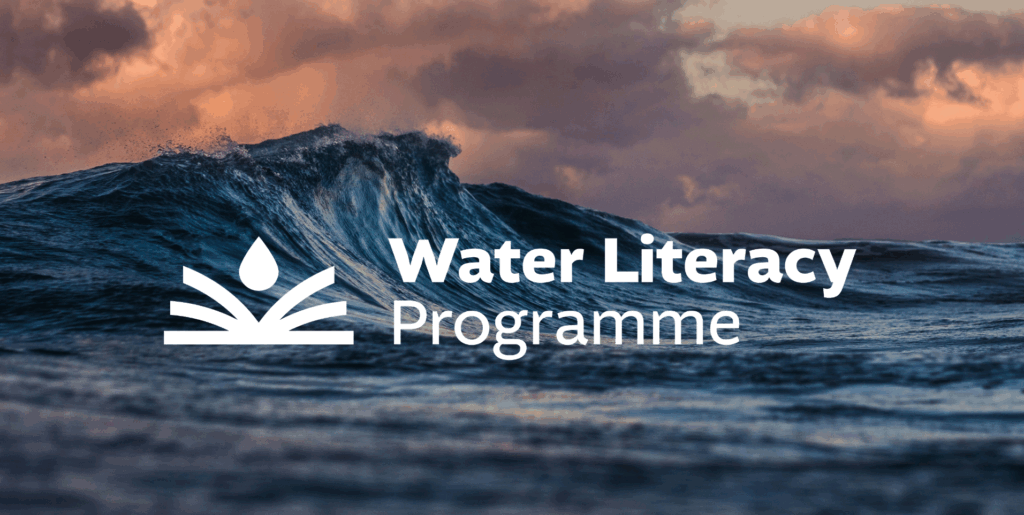Fully-funded Water Literacy training available to first 2000 learners

As demand for freshwater increasingly outstrips supply, the impacts on the natural world and society intensifies. The environmental organisations Waterwise and Groundwork along with Northumbrian Water have been working together to address this – launching a new training programme which will accredit participants as ‘water literate’.
The Water Literacy Programme, supported by the Ofwat Innovation Fund, is a training course designed to equip individuals with the knowledge and tools to respond to the growing challenge of water scarcity in the UK. Rooted in science and inspired by a sense of shared responsibility, the programme invites people of all backgrounds to take meaningful action in their homes, workplaces, and communities.
Water is a precious gift, yet we often overlook its journey and the impact of our use. This course helps reconnect us with the source, showing how our choices affect the environment and future generations. It’s about turning knowledge into action – action that honours the world we’ve been entrusted to care for.
Tim Wagstaff, Lead Water Efficiency Manager, Northumbrian water
As part of a national pilot, the programme has fully-funded spaces for the first 2,000 participants and is initially aimed at professional development, offering a day’s worth of learning delivered online or in person. Participants who complete the course have the opportunity to become accredited as ‘water literate’ – empowered to lead by example and inspire others within their organisations and communities.
This is more than a course – it’s a movement. Being water literate means becoming a changemaker: someone who can guide colleagues, uplift communities, and influence sectors to adopt sustainable practices. Our collective actions, however small, can ripple outward and bring about lasting change.
Jo Osbourn, Head of Policy and Research, Waterwise
At Groundwork we have been training people to become carbon literate for a few years and it was evident water was the missing link. This programme helps restore that connection, showing how each of us can make a difference through informed stewardship.
Jane Herbert, Programme Manager, Groundwork East
The water literacy course was fantastic. It was so helpful to drill down into this particular environmental issue – I learned a lot and I have to say that I’ve changed how I behave, and I thought I was pretty eco-conscious before I did the course! It was a good mix of stats and stories, and ways to make a difference.
From a faith perspective water is often hugely symbolic, so taking care of our environment, and of a resource that is laden with importance and spiritual meaning, is something faith communities will want to engage with. As a Christian I know that thinking about water use is part of the A Rocha Eco Church process, and this course can really help church groups understand and implement their Eco Church actions and assess their impact here and on a wider scale. Other faith groups have programmes and teachings that will benefit from the course, too. So I’d recommend it to any who want to start thinking about their environmental impact and how they can make a difference.
Anne Watson, course participant and church eco champion
With the UK’s population set to grow by 5 million in the next decade and water stress already affecting two-thirds of the country, the need for wise and compassionate water use has never been greater.
Two-thirds of water company areas are water-stressed. With 1.5 million new homes pledged by the government before 2029, demand on the water network will only increase. The water sector will be increasing supplies, including building new reservoirs. But we also need to use the water resources we have more efficiently– and that can only be achieved through greater water literacy.
Just as growing awareness and knowledge of our individual carbon footprints is encouraging people to make more sustainable choices, so too can greater knowledge of our water system and how we use it. Investment expenditure in the water sector is set to quadruple over the next five years as part of a wider £104 billion plan to benefit customers, the environment and to support economic growth. Those benefits will only be felt if we all use the water we have in a smarter way. And that means equipping people with the skills through programmes like this to drive change and empower customers and communities to be more water efficient.
Jeannette Henderson, Principal, Ofwat Innovation Fund
